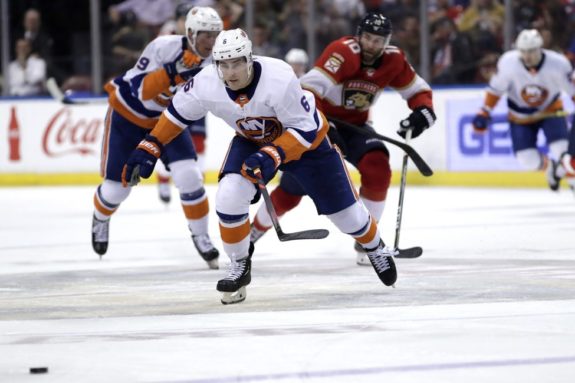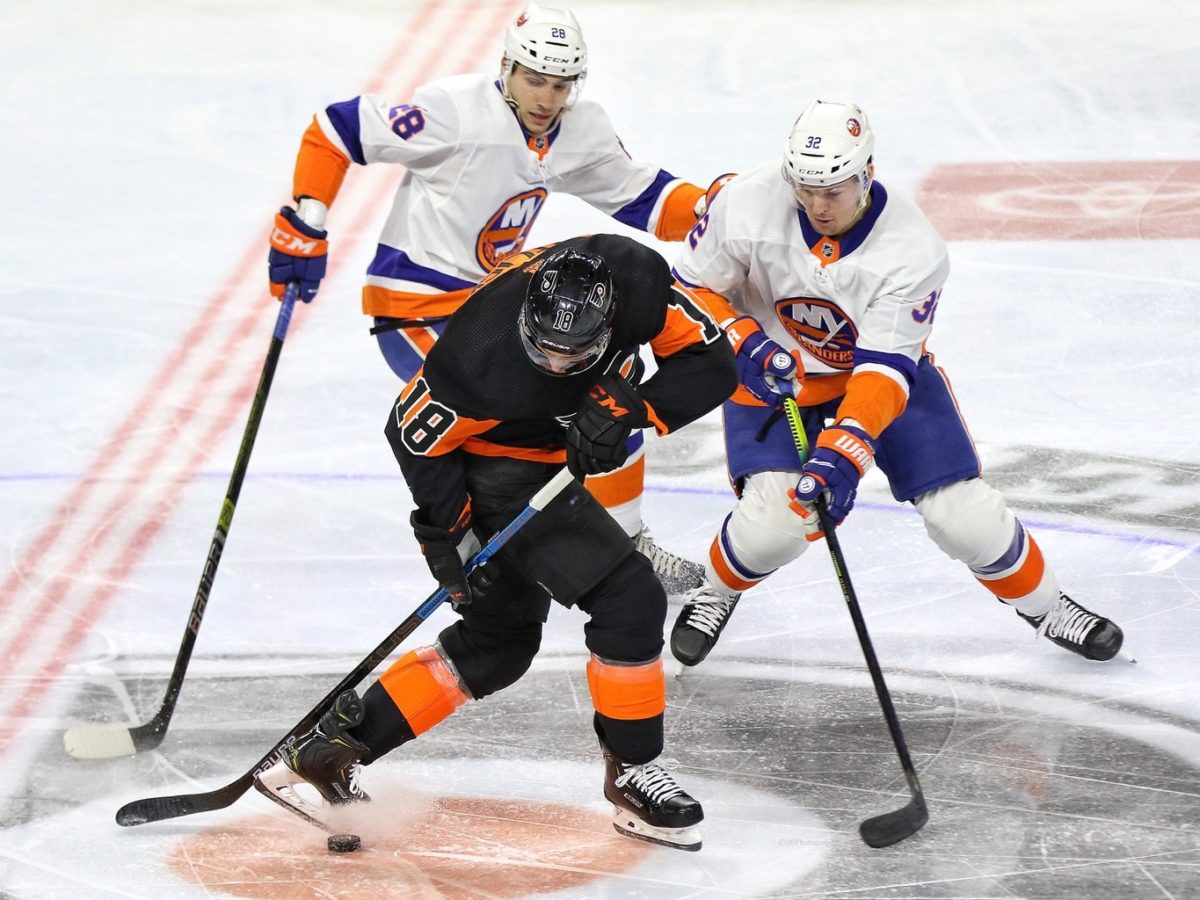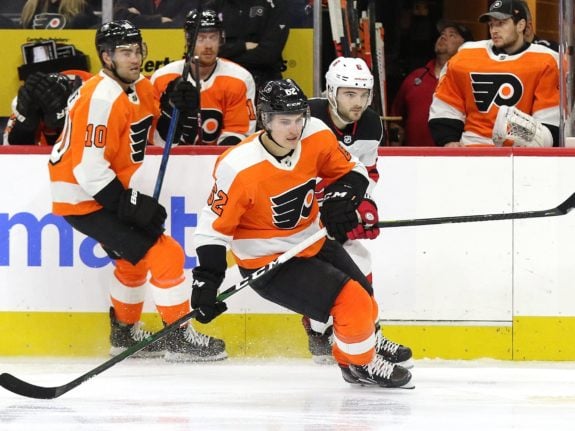The Philadelphia Flyers appeared poised for a deep playoff run after a dominant round robin. Now suddenly, and perhaps surprisingly, they are on the brink of elimination, trailing the New York Islanders three games to one in the second round.
The Flyers have had difficulty adjusting to the Islanders’ style of play. The Islanders rarely win games solely on the strength of their offense. Rather, they rely on strong goaltending, clogging up the neutral zone and perhaps most importantly, playing a tight-checking game. The checking manifests itself on both ends of the rink; on offense, the Islanders play a chip-and-chase game with strong floor-checking, while on defense, they look to aggressively shut down their opponents.

This type of play contrasted from that of the Flyers’ round robin opponents. These teams, the Tampa Bay Lightning, Washington Capitals and Boston Bruins, all had high-flying offenses that could erupt at any moment. In the regular season, they scored 243 goals, 236 goals and 227 goals, respectively. The Flyers, with 227 goals, were able to hold their own with these elite offenses.
Related: Revisiting the Brayden Schenn Trade
The Islanders’ offense paled in comparison with just 189 goals. Nonetheless, they made up for it in the “hits” column. They mustered 1,915 hits in the regular season. The Lightning, Capitals and Bruins had 1,677, 1,716 and 1,649, respectively. As for the Flyers, they had just 1,501. Matt Martin led the Islanders and was fifth in the NHL with 242 hits. Meanwhile, Robert Hagg led the Flyers with 136 hits, good for 53rd in the league.
The Montreal Canadiens were a tough opponent in the six-game first round series. They scored just 208 goals in the regular season, but recorded 1,882 hits and continued this scrappy style of play in the postseason. The Flyers are now facing an even more aggressive team. So far, this disparity in aggression has helped the Islanders to a commanding series lead. Now the Flyers must adjust or face elimination.
A Lack of Flyers Aggression So Far
Unsurprinsgly, the Flyers were outhit in the first three games of the series. Across those games, the Islanders recorded 16 more hits. The biggest hit-deficit occurred in Game 2, when they held a 39-31 advantage. Ironically, that was the one game of the series that the Flyers actually won. Nonetheless, they were outplayed for the majority of the game, blew a three-goal lead, and had to rely on a fortunate overtime deflection to earn the victory.
In Game 1, a 4-0 Flyers loss, Ross Johnston recorded a staggering 10 hits for the Islanders. No other player this series for either team — has tallied more than six hits in any game.

Checking is such a crucial part of the game because it rattles the opposition and often forces them into making bad decisions or giving up the puck. In that first game, the Flyers were outhit 34-29. Consequently, the Islanders recorded eight takeaways, while the Flyers recorded just three. Moreover, perhaps sense these oncoming hits, Alain Vigneault’s squad gave the puck away 15 times, while the Islanders did just 11 times.
The Flyers managed to outhit the Isles in Game 4, with a 39-35 margin. That just so happened to be one of their best games of the series. Though they lost 3-2, the Flyers dominated much of the game and even outshot their opponents 17-3 in the second period. Furthermore, thanks to their hit advantage, they also recorded three fewer giveaways. Islanders head coach Barry Trotz said that was “the worst game we’ve played to this point in the playoffs.” They will need to follow a similar game plan in Game 5 should they hope to turn the series around.
Who Can Step Up for the Flyers
Unless the Flyers keep their heads up and move the puck quickly, they will not be able to close the hit deficit by limiting the Islanders’ checking. Instead, they will need to match these checks with some of their own.
So far, Nicolas Aube-Kubel and Philipe Myers have been the Flyers’ best checkers this series. Aube-Kubel has a team-high 18 hits, thanks in large part to the six he recorded in Game 3. He has led Flyers forwards in hits in all but one game this series. Meanwhile, Myers leads the defensemen with 16 hits. Hagg, who missed Game 1, is not too far behind with 11 hits.

Unfortunately, some of the other players have been less aggressive. Matt Niskanen was third on the team with 124 regular season hits. He has just eight so far, and twice this series recorded just one hit. Meanwhile, Kevin Hayes was sixth on the team with 88 hits in the regular season. He has just four this series, and failed to record any in Game 3. Even Tyler Pitlick, who was second in the regular season with 132 hits, could be more aggressive. He has 10 so far against the Islanders.
Related: How to Talk Like a Hockey Player
Ultimately, if the Flyers hope to turn this series around, they will need to adjust and match the Islanders’ level of aggression. Hits lead to giveaways or takeaways, which ultimately lead to goals. Getting this done will be a total team effort. Each player will need to be tougher and add a bit more grit to their game. That shouldn’t be too much to ask for the team whose mascot is Gritty.